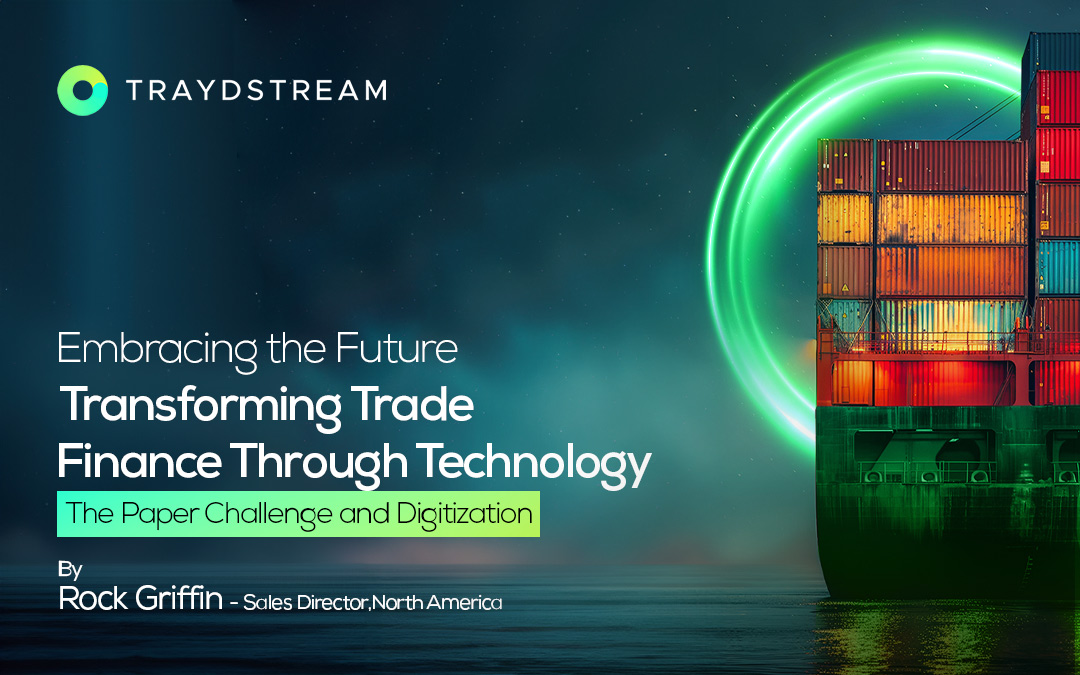
Embracing the Future: Transforming Trade Finance Through Technology – Part 2 The Paper Challenge and Digitization
Paper, Paper Everywhere!
We have been lamenting our dependence on and excessive use of paper for years. Despite some improvements, we remain ensnared by paper’s limitations, resulting in slow processing, heavy human involvement, poor audit trails, and security vulnerabilities, along with limited integration capabilities with modern technologies.
While organizations like the ICC play a significant role in overcoming regulatory challenges, banks and their corporate clients can take the lead now. By making relatively minor investments and changes, they can achieve continuous improvement and realize positive ROI.
The Burden of Paper
Paper is bulky and slow to handle, especially when moving between individuals or across international borders. It requires manual checks by a shrinking pool of experts. Imagine if most of the information arrived pre-digitized and pre-checked directly from corporate clients. A system like Traydstream could then process routine tasks in minutes rather than hours or days. Digitized presentations and LCs could travel globally at internet speed, reaching the correct destination without delays or losses. Changes could be made and returned to the bank just as swiftly. This would provide a competitive advantage and result in more satisfied clients.
Potential Challenges In Digitization
There has been a lot of focus on digital data transfer vs original signed paper. Though not fully embraced /acceptable globally, recent law updates in the UK on acceptance of digital BOE (Bills of Exchange) / Drafts is a move in the right direction. There have been selective successes on digital BL (Bills of Landing) among certain clients, but there is still a long way to go. Happily, the Traydstream solution is able to cater to both paper & digital, giving banks and corporates needed flexibility.
The Risks of Paper
Paper can be damaged, delayed, or lost. (My wife and I once received a wedding invitation 18 months late!) Banks cannot afford such risks. Digitized documents offer backups and same-day delivery verifications, significantly reducing these risks.
Security and Audit Trails
Security and audit trails are crucial for handling sensitive information. Scanned and digitized documents can be encrypted, and electronic audit trails can track document interactions, reducing risks further.
Efficient Archiving
While paper archiving will still occur, it can be done offsite and only when necessary. Electronic versions are faster to access and cheaper to store than paper kept around the office.
Client Integration and ROI
Involving larger corporate clients in this digital transformation can also provide positive ROI. If they scan documents and use solutions like Traydstream to pre-check, correct, and forward digitized documents, it enhances timeliness and accuracy, making them “stickier” clients as they become integrated into your systems and operations. The greatly improved speed and integration also speeds the exchanges of funds for the corporates.
All great reasons to get rid of paper sooner and not later.
Do you have a plan of action? Does your senior management understand and support you? How are you getting your larger clients involved? How can we help?
Join us as we continue to explore these themes and more in our upcoming posts. Your feedback and insights are invaluable as we navigate the future of Trade Finance together. Until next time…



